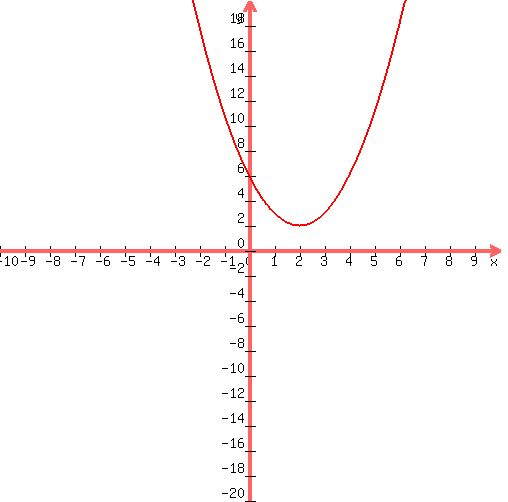Question 169185: Please help.
Solve:
a) 4^x-6 = 16^x
===================
b) e^-2x = 0.3
Thank you.
Found 2 solutions by Alan3354, jim_thompson5910:
Answer by Alan3354(69443)   (Show Source): (Show Source):
You can put this solution on YOUR website! Please help.
Solve:
a) 4^x-6 = 16^x
4^x - 6 = 4^2x
4^2x - 4^x + 6 = 0
This is a quadratic in (4^x). Sub x for 4^x, because the solver only uses x.
| Solved by pluggable solver: SOLVE quadratic equation (work shown, graph etc) |
Quadratic equation  (in our case (in our case  ) has the following solutons: ) has the following solutons:

For these solutions to exist, the discriminant  should not be a negative number. should not be a negative number.
First, we need to compute the discriminant  : :  . .
The discriminant -8 is less than zero. That means that there are no solutions among real numbers.
If you are a student of advanced school algebra and are aware about imaginary numbers, read on.
In the field of imaginary numbers, the square root of -8 is + or -  . .
The solution is  , or , or
Here's your graph:
 |
4^x = 2 + i*sqrt(2)
4^x = 2 - i*sqrt(2)
I'll have to do some research on that one.
--------------------
If you repost it, maybe someone else can help. I wouldn't be optimistic, tho.
Make sure there's not a typo somewhere, too.
===================
b) e^-2x = 0.3
-2x = ln(0.3)
-2x = -1.204
x = 0.602
Answer by jim_thompson5910(35256)   (Show Source): (Show Source):
|
|
|